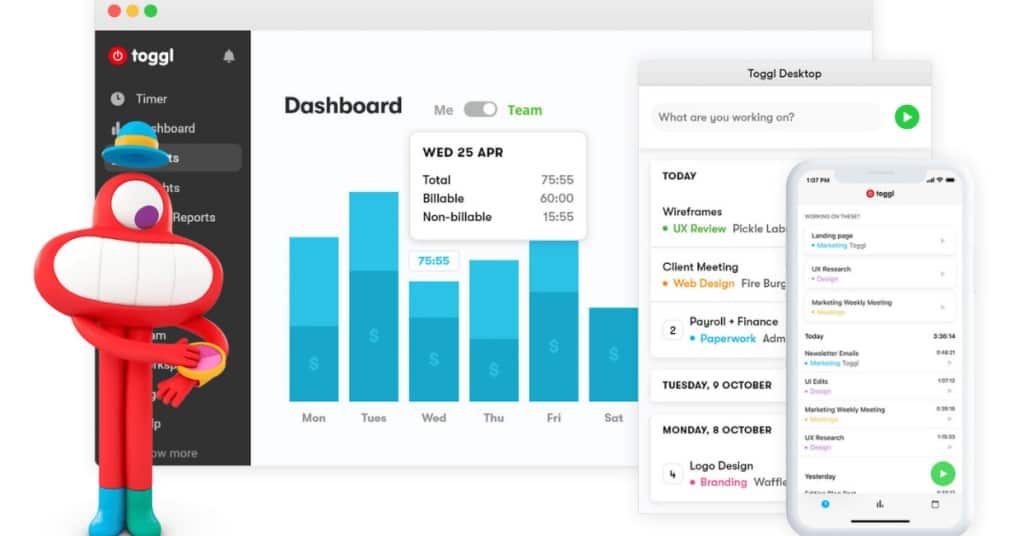Should Your Small Business Offer a ‘Work From Home’ Option | And How To Write One
Are staff members more productive when they’re operating in the office or allowed to work from home?
Well, it depends on who you ask. Business leaders just can’t seem to agree on whether working from home is great or bad for business. One thing is clear, though: the numbers show that remote work is on the rise.
A current study by Global Workplace Analytics shows that 40% more U.S. employers provided versatile office alternatives than they did 5 years back. And also, 69% percent of companies offer remote options for staff members in at least some of their company positions.
The question is: should you provide your workers with the ability to work from home? What sort of work from home policies or standards would you require to have if you were to do so?
What is a Work From Home Policy?

Put simply, a work from home policy is a set of guidelines used by a company that outlines the regulations about exactly how employees can function when working remotely, as opposed to physically entering into the workplace.
Undoubtedly there are some jobs that can not be done from another location. If clients regularly come to meet you at your workplace, for that, you are required to be in your office. And obviously, assembly line workers and front-facing customer service employees are needed to be on site.
Whether you do or don’t allow your workers to work remotely, you must have an official work from home policy in your worker handbook so that all employees comprehend the guidelines.
Should Employers Offer ‘Work From Home’ Options For Employees?

For many years Microsoft creator Bill Gates has been promoting the value of an adaptable work from home plan. He as soon stated, ” Companies that offer extra flexibility to their workers will have the edge.”
All these years later, when the COVID-19 pandemic swept throughout the globe, and public health authorities commonly advised that employees stay home to prevent the spreading of illness. Charter Communications CEO pushed back against these requests, issuing a statement notifying all their employees that remote work was not allowed because employees “are more efficient from the workplace.”
Just how is it that two business titans could have such vastly different stances on remote work? Well, every company is distinct and requires to choose for themselves whether remote work is positive or negative for their own business.
Below are some concerns you need to go over when considering your work from home plan.
Will Your Employees Be Productive Working From Home?

The argument regarding remote work performance is far from being settled, yet to get the most effective results, you require to set your team up for success. One of the most essential ways to assist your team’s productivity is to leverage the best innovation. If teams aren’t physically with each other, after that, they require to collaborate electronically instead.
The most effective way to achieve this is to have a job management software that allows team members to collaborate on the exact same platform; if you do not have a great system to obtain exposure right into your group’s job after that remote work will cause a lack of organization and a loss of efficiency.
What Do the Company Leaders Think?

It’s also essential to speak to your leadership group about exactly how they feel concerning remote workers because it’s their direct records that will utilize your remote work plan.
Frequently your executives, VPs, and department heads are your most devoted and skilled team, so it’s crucial to obtain a buy-in from them before moving forward with something as big as moving part or all of your staff to remote positions.
If all of the business leaders are pleased with your remote work business plan, you’ll see the most effective outcomes.
Can Your Managers Handle It?
Every manager has a different style of management. Managers with solid communication skills will certainly adapt well to remote work and see very little change in their team’s efficiency.
Some managers that are reactionaries might not be able to deal with the adjustment. If your firm leaders aren’t efficient in taking care of a dispersed team, you’ll likely face issues.
How Will Remote Work Affect Company Profitability?

Remote work can have a notable impact on the bottom line for an organization. The company will suffer if there is a performance loss. Nonetheless, some teams will certainly see raised productivity, which can enhance success.
An additional economic consideration is that a remote staff does not need the exact same amount of investment from the company. If workers function from home, after that, the company will invest much less on things like office space, utilities, business facility up-keep and repairs, internet service and telephone service costs, snacks, company events, and also devices (remote workers are usually expected to provide their own computers, headsets, and anything else needed).
How Do The Employees Feel?

Most notably, you need to get feedback from your staff members concerning this. The Global Workplace Analytics research likewise shows that 80 percent of staff members wish to work from home at least part of the time, so it’s likely that having adaptability in your policy will make workers satisfied.
Working from home benefits workers by allowing them to save money on commuting to and from work. They also save time – instead of driving an hour to work and then an hour home, they now have two additional hours free each day without losing any work hours. This is particularly appealing to people who live far from the office or live in climates that have bad winter weather that they would rather not drive in for their own safety.
Additionally, your work from home plan can greatly impact your ability to hire and employ brand-new workers. Very certified task prospects that are accustomed to a versatile work environment may pass you up if your plan does not permit remote work. This goes for employee retention, also. If you offer remote work, employees going through major life changed (getting married, moving, etc.) who may have otherwise been forced to quit in order to find work closer to their new home can now stay with the company.
Work From Home Policy Examples

Now that you’ve evaluated all of the pros and cons of remote work, you’re prepared to compose your very own work from home policy. We’ve included some examples of plans that you can make use of to get started.
Work From Home Policy 1 – Situational Work From Home Policy
Our company values hard work, cooperation, and team effort, so we would certainly like you to work in the office daily. We understand that life can get in the way sometimes, so we allow employees to work from home for one-off occasions like:
- Your Child’s School is closed for the time being due to circumstances beyond your control.
- You have a professional that needs access to your residence, and you are required to be home during this time.
- You are really feeling unwell; however, you’re still able to work.
- Severe Weather has made it impossible for you to make the commute to work.
- Sickness / Personal Injury / or Recovery from Surgery has resulted in you being unable to physically attend work. However, you are still able to complete work tasks from home in your current condition.
Important Note:
All work from home occasions should be accepted by your supervisor beforehand so we can prepare appropriately. Managers have the discretion to approve/deny any kind of work from home requests. Work from home periods may be limited to a maximum of 1 day, 1 week, or 1 month depending on business needs and reasoning of work from home request.
Work From Home Policy 2 – Allowance-Based Work From Home Policy
Our company values effort, partnership, and a team effort, so we would like you to operate each day. We likewise understand that time-to-time, our employees choose to work from home for various factors. To supply you with some adaptability, each worker is allocated three (3) work from residence days per calendar month. When scheduling your remote days, make sure that you are not away for essential in-office meetings or events; please utilize discretion.
Work From Home Policy 3 – Open Work From Home Policy
Considering that our company culture is built around freedom and flexibility, we have an open work from home option available to all employees after they’ve completed their initial three (3) month trial period with the company. We encourage you to work from home whenever you want, as long as you’d like. Employees can choose to switch from in-office to remote / work from home status at their own discretion provided they have suitable office space within their residence and provide one (1) full weeks notice of their change in status from an in-office worker to a remote worker.
How TOGGLE Helps Teams Work From Home

When team members are working remotely, it’s a regrettable fact that teamwork becomes difficult. That’s why TOGGLE has built job monitoring software with everything you might require to interact with your team online. TOGGLE offers collective project administration devices for groups that wish to work better with each other, regardless of where workers are physically at any given time.
Preparation Tools
The success of a job is highly dependent on what type of preparation was done at the start. TOGGLE provides tools that enable you to arrange all of your group’s tasks in a visual timeline to aid you in your tasks. Each job can be designated to a team member to be executed, all in the same platform.
Shared Projects
Teams require to collaborate in order to be successful, which can be particularly challenging when employees are working from another location. With TOGGLE, teams can share their progress, so everybody works in one main workspace.
Cloud-Based Platform
TOGGLE’s cloud-based job administration software is accessible online via an internet browser, so remote staff members and those who function from the house can remain linked to their groups, anywhere there is web access.
Final Thoughts

Working from home is becoming more and more common and for many industries it is beneficial to both employees who, when working from home, no longer need to worry about commuting to work, and to companies who can save costs on office space, unnecessary supervisor positions, and no longer have to worry about things like whether or any potential national health crises impacting employees ability to come into work.
This change from location-dependent work and remote work is a difficult one for many businesses to manage but with the work from home policies and systems outlined here you’ll have a firm foundation to build from as you navigate your small businesses’ own work from home policies.
If you would like to know how to best manage work from home employees and remote teams check out our companion article here.
- How to Save Money on Marketing (Without Scaling Back) - October 15, 2022
- Become Your Own Marketing Department With These Essential Tips - October 5, 2022
- The 100 Best Money Quotes of All Time - August 16, 2022








